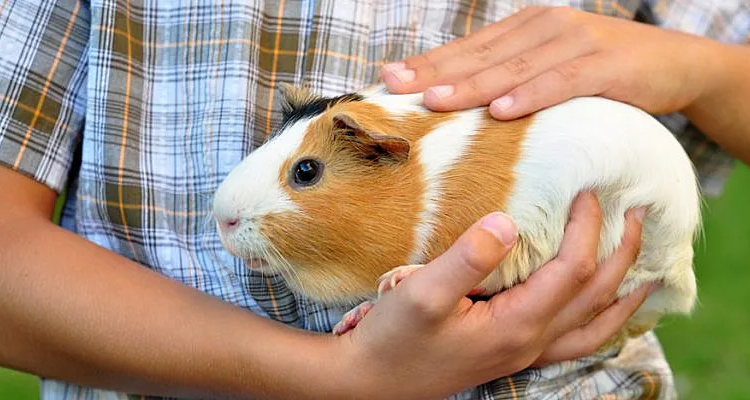Guinea Pig Care Rules: Everything You Need to Know
Guinea pigs are popular pets valued for their friendly and sociable nature. They require special attention and care to ensure a healthy and happy life. In this article, we will explore the key aspects of guinea pig care, from their living environment to diet and health.
Housing
Spacious Enclosure: Guinea pigs need plenty of space to move around. An enclosure of at least 0.7 square meters per guinea pig is recommended. If you have more than one, the space should increase accordingly.
Bedding: Use safe bedding, such as specialized wood shavings or hay. Avoid cedar or pine shavings, as they can cause respiratory issues.
Hiding Places: Guinea pigs like to hide, so their enclosure should have shelters or hiding places where they can rest and feel secure.
Diet
Hay: Hay is the basis of a guinea pig’s diet and should be available 24/7. It provides the necessary fiber for proper digestion and dental health.
Fresh Vegetables and Fruits: Offer fresh vegetables daily, such as cabbage and carrots, and a small amount of fruits. They are sources of vitamins and minerals.
Guinea Pig Food: Specialized guinea pig food contains essential nutrients that may be missing from other food items.
Water: Fresh water must always be available in a drinking bottle. Change the water daily and ensure the bottle is clean.
Health and Care
Regular Check-ups: Check your guinea pigs daily for signs of illness or injury. Pay attention to appetite, activity, fur, and eye condition.
Cage Cleaning: Clean the enclosure regularly, completely changing the bedding and removing waste at least once a week.
Fur Care: Long-haired guinea pigs require regular combing to prevent matting.
Claws: Guinea pigs’ claws constantly grow and may need trimming to avoid discomfort and mobility issues.
Socialization
Guinea pigs are social animals that need the company of their own kind as well as humans. Spend time interacting with your guinea pigs, petting, and talking to them to get them accustomed to your presence and voice. Play and attention will help strengthen your bond and make them more trusting and socially active. If possible, consider getting a second guinea pig for company, but ensure you have enough space and resources to care for two animals.

Breeding
Guinea pigs can start breeding at a very young age, so it’s important to keep males and females separate if you do not plan on breeding. Breeding guinea pigs requires careful planning, knowledge, time, and readiness to take responsibility for caring for the offspring.
Disease Prevention
Guinea pigs are prone to a range of diseases, including digestive, respiratory issues, and vitamin deficiency, especially a lack of vitamin C. To prevent health issues:
- Enrich their diet with high-quality feed and fresh products rich in vitamin C.
- Avoid sudden changes in their diet that can cause stomach upset.
- Maintain cleanliness and dryness in the enclosure to prevent infections and respiratory diseases.
- Regularly consult with a veterinarian, especially if you notice signs of illness in your guinea pig.
Interaction with Children
Guinea pigs can be excellent pets for families with children, but it’s important to teach children how to properly handle them. Explain that guinea pigs are living beings that require gentle handling, and demonstrate how to properly pick them up to avoid injuries.
Conclusion
Caring for guinea pigs requires time, patience, and knowledge of their needs. By providing proper care, you can ensure that your pet will lead a long, healthy, and happy life. Remember that each guinea pig has a unique personality and needs, so it’s important to approach the care of each animal individually, observing and adapting to its preferences and behavior.

